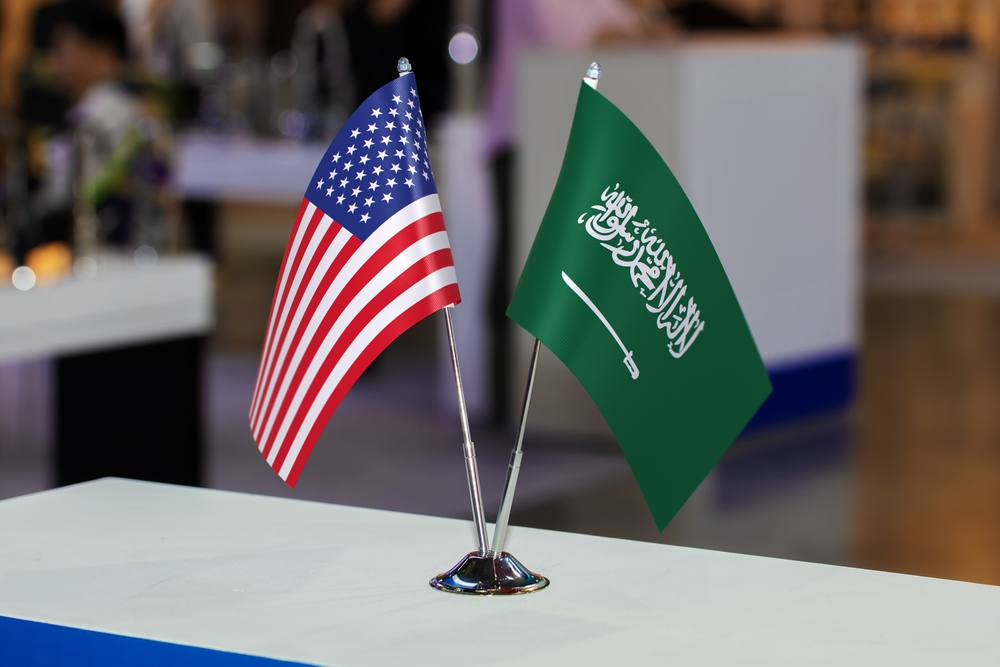AI chips, data centres and geopolitics
One of the most important points of the agreement is Saudi Arabia's improved access to the most advanced chips from American companies such as Nvidia and AMD. These represent the technological core in training and operating language models or other advanced AI systems. Their shortage is one of the main limiting factors for the global development of this technology. At the same time, a new data centre is to be built in the city of Dammam, where Google Cloud and the Saudi Public Investment Fund (PIF) will cooperate on the development of local artificial intelligence solutions. The project is part of a broader effort to transform Saudi Arabia from an oil giant into a tech epicentre, with an emphasis on the digital economy and income diversification.
Investments suit both sides
While there is a lot of talk about what Saudi Arabia is gaining, the deal is mutually beneficial. DataVolt, a Saudi technology firm, is investing up to $20 billion to build data centres and energy infrastructure in the U.S., meanwhile, U.S. firms have pledged $80 billion in breakthrough technologies on both sides. For American AI companies, this means access to fresh capital, energy resources and expansion into the growing Middle East market. Nvidia, Google, AMD and Oracle are thus gaining space for new data centres, which are already hitting physical and regulatory limits in the US and Europe.
Technology stocks strengthened significantly
Shares of several technology companies reacted positively to the news of this strategic partnership. Nvidia shares rose after the deal was announced, as the promise of increased exports of advanced semiconductors to Saudi Arabia represents another growth boost for the company, which already dominates the global AI hardware market. Similarly, shares of AMD, which is seeking a larger share of the AI chip market, have strengthened, and new regions such as Saudi Arabia may significantly support its ambitions. Alphabet, Google's parent company, came to the attention of investors mainly thanks to the aforementioned planned cooperation of Google Cloud on the construction of a data centre in Dammam. Although the movement of Alphabet shares has been more moderate, investors see expansion into the region as a long-term strategic opportunity.*



Source: tradingview.com*
China poses a risk
However, the US does not rely only on trust in this agreement. A key condition is that U.S. firms operate and control data centres using their chips to prevent their misuse or diversion into the hands of potentially hostile states, especially China. The fears are not unfounded – Saudi Arabia has a history of cooperation with China in the field of technology, which has led to restrictions from the US in the past. Therefore, it will be important that strict security protocols and surveillance of supply chains are followed. Otherwise, there is a risk that sensitive information will end up in Chinese hands – either through hardware leaks or through cloud abuse of AI infrastructure.
A new hub of artificial intelligence
In the long term, this collaboration has the potential to create a new strong AI ecosystem in the MENA (Middle East and North Africa) region. In addition to the direct economic benefits, the new AI centres can serve as a catalyst for the emergence of local startups, technology schools and regional development of tailor-made applications – from energy to healthcare to digital state services. From the U.S. perspective, it is also a strategic anchoring in a region where technology partnerships are gaining the same weight as military bases or oil contracts. This creates new avenues for AI companies to expand beyond the oversaturated Western markets.
Conclusion
The partnership between the US and Saudi Arabia is much more than just a series of chip and server agreements. This is a geopolitical move by which the United States is consolidating its technological influence in the region, strengthening the global position of its AI firms while looking for a way to maintain control over these critical technologies. For Saudi Arabia, this is a chance to become one of the digital powers. For the rest of the world, this is a clear signal that the future of artificial intelligence may be decided outside of traditional hotspots such as Silicon Valley.
* Historical figures are not a guarantee of future returns.
Warning! This marketing material is not and should not be construed as investment advice. Data relating to the past are not a guarantee of future returns. Investing in foreign currency can affect returns due to fluctuations. All securities trades can lead to both profits and losses. Forward-looking statements represent assumptions and current expectations that may not be accurate or are based on the current economic environment, which is subject to change. These statements do not guarantee future performance. InvestingFox is a trademark of CAPITAL MARKETS, o.c.p., a.s., regulated by the National Bank of Slovakia.
Resources:
https://www.reuters.com/breakingviews/trumps-saudi-victory-lap-belies-ai-fears-2025-05-13/
https://www.channelnewsasia.com/world/us-saudi-arabia-ai-chips-whats-stake-5131236
 English
English
 Slovak
Slovak
 Czech
Czech
 Hungarian
Hungarian
 Italian
Italian
 Polish
Polish





